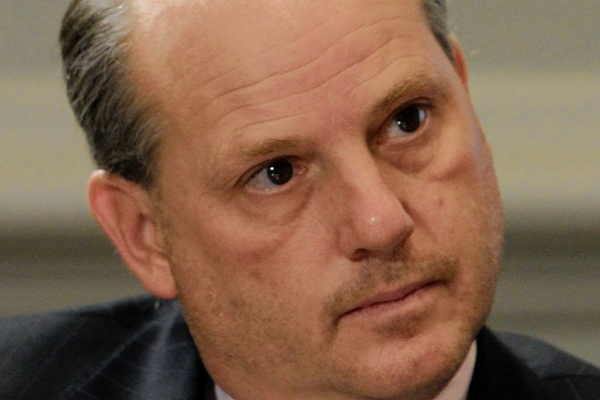|
THE
WALL STREET JOURNAL.
|
Markets
Markets
Taking Sides on Activist Investors
SEC chairman
and a leading judge discuss activists and disclosure rules

Leo Strine Jr., chief justice of the Delaware Supreme Court
PHOTO: ASSOCIATED PRESS |
By
David Benoit
And
Liz Hoffman
Updated March 19, 2015 8:53 p.m. ET
NEW ORLEANS—Wall Street’s
top cop delivered a forceful defense of activist investors on
Thursday, while a leading judge argued her agency gives them too much
leeway to operate in secret.
Mary Jo White,
chairman of the Securities and Exchange Commission, called some
activism “constructive” and said that in “certain situations, activism
seeks to bring about important changes at companies that can increase
shareholder value.”
Meanwhile, Leo Strine Jr.,
chief justice of the Delaware Supreme Court, urged changes to SEC
disclosure rules that apply to many activist positions.
The remarks, made Thursday
at a gathering hosted by Tulane University Law School of advisers who
focus on mergers-and-acquisitions and securities work, reflected the
growing importance of activists. These investors typically take
positions in companies and then agitate for changes, such as stock
buybacks or corporate breakups, in an effort to boost share prices.
Activists have long been
criticized as short-term players who complicate boards’ efforts to
focus on growth. But in recent years, they have enjoyed increasing
success in their corporate campaigns and have attracted a significant
amount of money from established long-term investors.
Ms. White, whose role as
SEC head is to protect investors, said various types of activist
campaigns, including those that eventually become public, “can be
compatible with the kind of engagement that I hope companies and
shareholders can foster.”
Ms. White also said that
companies increasingly are talking with shareholders, including
activists, which she called “generally a very good thing.”
Mr. Strine took aim at an
SEC policy vigorously defended by activists that gives them 10 days to
disclose a stake in a company above 5%. The jurist, who doesn’t have
any formal authority over SEC policy but who is a well-respected voice
in corporate law, said investors should be required to file their
positions with the SEC sooner, and potentially at a lower threshold.
He said investors crossing
the 5% threshold should disclose their stakes in “real time,” perhaps
within as little as 24 hours. He also raised the possibility of
lowering the disclosure threshold to 2%, saying changes to the rules
would increase transparency in the markets. Mr. Strine said investors
should be forced to report ownership of options and other derivatives,
which aren’t counted under current rules but which can eventually be
used for voting.
Activists have long
maintained that faster disclosure would tip their hand prematurely,
reducing the financial incentive to take such stakes and potentially
depriving all shareholders of needed corporate change.
Mr. Strine also
recommended doing away with a rule that requires investors above the
5% threshold who plan to be active, or press for corporate change, to
file one form, known as a 13D, while so-called passive filers, such as
many mutual-fund companies, use another, known as a 13G.
“If you’re too dumb to
realize
Nelson Peltz or Bill Ackman is an
activist, you’re too dumb to fight them off,” Mr. Strine said.
Despite requests, the SEC
hasn’t tinkered with the rules. Michele Anderson, the SEC head of
mergers-and-acquisitions reviews, on a later panel said tackling
activist-disclosure issues is “like peeling an onion,” where efforts
to take on one issue simply reveal another. “Whatever we do end up
doing will be very comprehensive,” rather than just, for example,
shortening the 10-day window, she said.
|

U.S. Securities and Exchange Commission Chairman Mary Jo White
calls some activism ‘constructive.’
Photo: Reuters |
|
The SEC did last week
charge eight people with failing to promptly update their disclosure
forms with material information, a sign the agency is keeping a close
eye on the matter.
“No matter how contentious
the relationship is between the activist and the company, or how high
the stakes,” Ms. White said Thursday, “all parties, including
activists and management, are obligated under the federal securities
laws to provide shareholders with timely, clear, complete and accurate
disclosures about the subject matter and their interests.”
As for whether activism is
good or bad for the economy, she said the SEC’s role isn’t to
determine whether activist campaigns are beneficial or detrimental,
but to make “sure that shareholders are provided with the information
they need and that all play by the rules.”
Write to
David Benoit at
david.benoit@wsj.com and Liz
Hoffman at
liz.hoffman@wsj.com
|